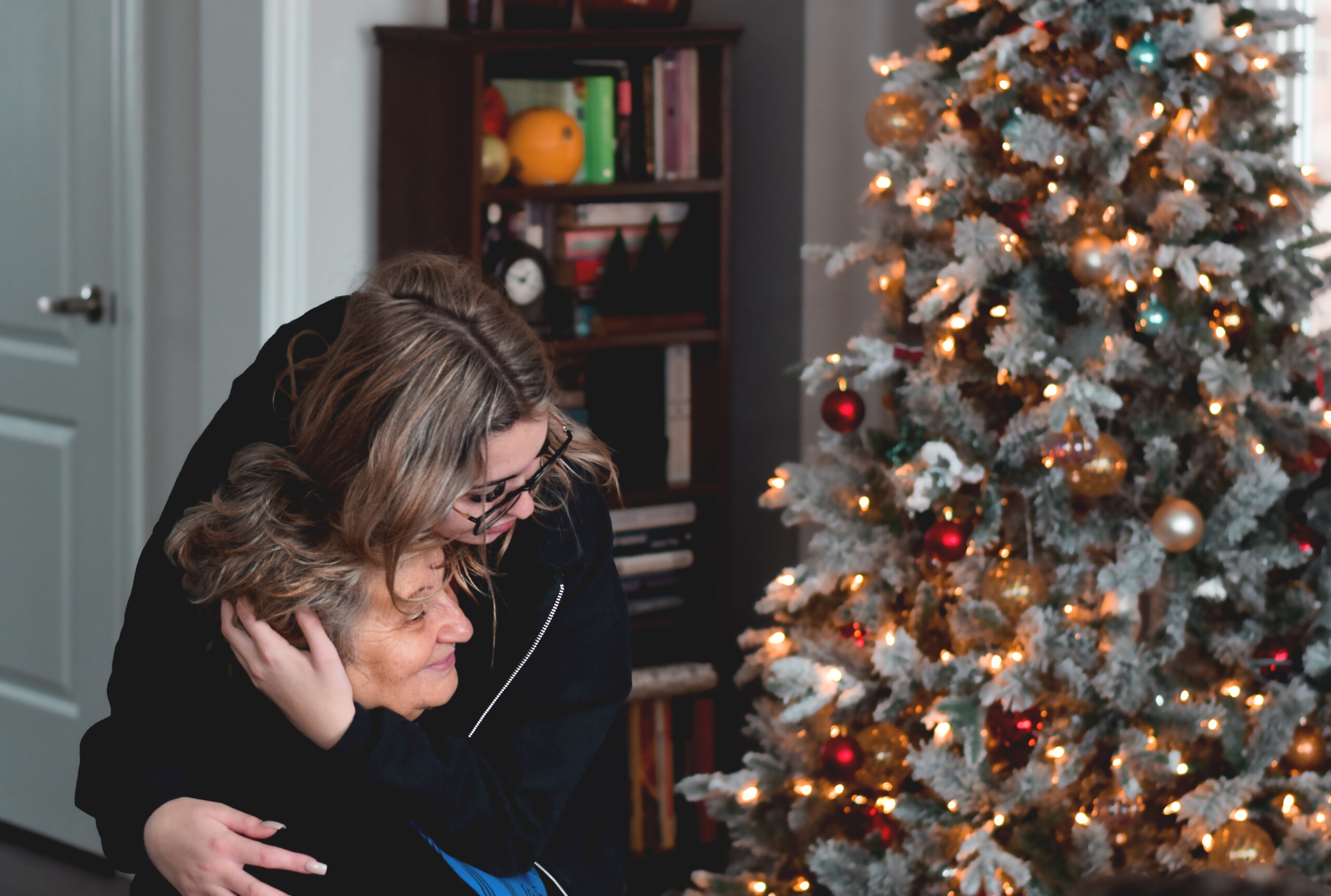The holiday season is often described as joyful, festive, and full of celebration. For people who are grieving, the holidays can feel very different. Instead of excitement, there may be sadness, loneliness, or a painful reminder of someone who is no longer here.
This experience is known as grief during the holidays, and it is incredibly common, especially after the loss of a loved one, a relationship, a job, or a major life change.
If you are struggling this season, you are not alone.
Why Grief Feels Stronger During the Holidays
Even when time has passed since a loss, holiday grief can resurface. The season brings emotional triggers like:
- Empty chairs at family gatherings
- Traditions that feel incomplete
- Memories of past holidays
- Social pressure to feel cheerful
- Loneliness or isolation
- Seeing other families celebrate
- Anniversaries of death, separation, or change

Many people describe feeling out of place or disconnected while everyone else seems festive. This contrast can intensify sadness and make grief feel heavier.
Grief Is Not Just Emotional
Grief affects the whole body and mind. During the holidays, you may notice:
- Low energy or exhaustion
- Trouble concentrating
- Anxiety or restlessness
- Sleep problems
- Irritability or anger
- Loss of appetite or overeating
- Crying unexpectedly
- Withdrawing from others
These reactions are normal, even long after a loss. Grief looks different for every person. There is no map, no rules, and no timeline.
There Is No “Right Way” to Grieve the Holidays
Some people want to keep traditions the same. Others want to change everything.
Both are valid.
Some people feel like celebrating honors their loved one. Others need a quiet season. Some want to be surrounded by family. Others need space to rest. Every experience is unique, and every emotion is allowed.
7 Strategies for Coping With Grief During the Holidays
There are healthy ways to ease the weight of holiday grief. These ideas can help you feel supported instead of overwhelmed.
1. Make a Plan
Holidays can feel unpredictable. Making small decisions in advance can reduce stress.
Ask yourself:
- What events feel supportive?
- Which ones feel uncomfortable?
- Who do you want to spend time with?
- Where do you need boundaries?
You are allowed to protect your emotional energy.
2. Say “No” Without Guilt
You do not have to attend every event, host every gathering, or pretend you are okay. Permission to rest is part of healing.
3. Adjust Traditions
Some families create new traditions such as lighting a candle, saying a prayer, sharing a memory, cooking a favorite meal, or donating in a loved one’s name.
Others choose to skip certain traditions completely. Both choices are healthy.
4. Accept Every Emotion
You may cry one minute and laugh the next. You may feel numb, angry, peaceful, overwhelmed, or hopeful all in the same week. Grief is not linear. There is no “normal.” There is only what you feel.
5. Stay Connected
Isolation can make grief even heavier. Talking to a trusted person, joining a support group, or reaching out to a friend can help you feel less alone. You do not need to carry everything by yourself.
6. Protect Your Mental Health
Grief can increase anxiety or depression, especially during the holidays. Sleep, movement, hydration, and quiet time can help stabilize emotions. Limiting alcohol may also reduce emotional crashes.
7. Honor Your Loved One
Sometimes small acts of remembrance can bring comfort. Ideas include:
- Lighting a candle
- Displaying photos
- Visiting a favorite place
- Writing a letter
- Hanging a special ornament
- Making a scrapbook
- Sharing stories with family
Honor them in the way that feels right for you.
When Grief Becomes Overwhelming
It is normal to have hard days, especially this time of year. But you may need additional support if grief begins to affect daily functioning, including:
- Not wanting to get out of bed
- Feeling hopeless or numb
- Losing interest in activities
- Thoughts of self-harm
- Relying on alcohol or drugs to cope
- Constant anxiety or emotional withdrawal
- Panic attacks
- Inability to work or take care of daily responsibilities
If grief feels unmanageable, talking with a mental-health professional can help. You do not need to wait until you reach a breaking point. Grief counseling provides a safe, compassionate space to talk about your loss, process emotions, and find healthy ways to cope.
Support from Lifeline Behavioral Health
Lifeline Behavioral Health offers counseling and therapy for people coping with grief, loss, trauma, depression, and seasonal sadness. Many individuals benefit from learning how to process emotions, build coping skills, and find meaning again. With locations across Arizona, support is accessible and private.
For people who notice that their grief affects work, concentration, or motivation, our article on workplace well-being discusses how emotional challenges appear in professional settings and offers strategies for staying grounded.
For those struggling with seasonal sadness, our guide on the holiday blues provides practical ways to protect emotional health during the winter months.
You are not expected to “get over it.” You are allowed to move at your own pace. Healing takes time, and support makes a difference.


